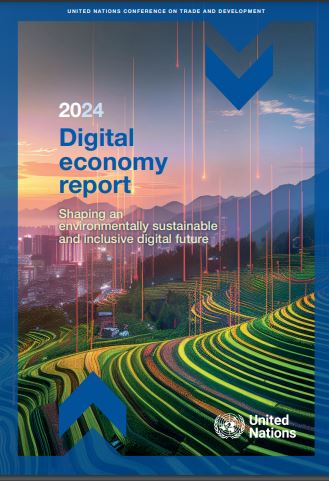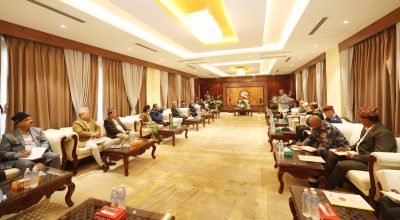
Kathmandu, July 13: For convenience to commerce and innovation in multiple fronts, digitalization is one of the most accelerated arenas at present.
It has however resulted into the global fear of cost on sustainable future and development goals. As the environment and climate change arrest equal attention, cautious digitalization to minimize negative impact and bridge yawning digital divide has been evidently unavoidable.
It is sheer contraction of global development that the least developed and developing countries are grappling with hindrances on forwarding both digitalization and sustainable developments, the super power and big economies’ super speed of digitalization began exacerbating already dented environment.
It has been reflected well in a recently released report.
The UN Trade and Development (UNCTAD) launched an analytical work, ‘The Digital Economy Report 2024: Shaping an Environmentally Sustainable and Inclusive Digital Future.’ The report has sought such policies across the world that encourage inclusive development with minimum negative impacts of digitalization.
“Digitalization has continued to evolve at a high speed and, from an environmental perspective, is offering new solutions but also obstacles to sustainability,” the report said, adding that collaboration is imperative for building a framework of democratic governance where these issues are dealt effectively.
According to the report, and ‘integrated approach’ is warranted in the transition of digital technology so that sustainable development would be not jeopardized.
“A just, low-carbon and digital technology transition requires an integrated approach to sustainable development, which brings together social progress, environmental protection and economic success into a framework of democratic governance,” it reminded.
Togetherness in underscored even by UN Secretary General Antonio Guterres to cope with twin agenda of digitalization and sustainable development. “We cannot address digitalization and environmental sustainability in silos.
This report calls for more comprehensive data on the environmental impact of digitalization, and digital policy frameworks that advance the Sustainable Development Goals and honour climate commitments,” he argued.
The UNCTAD document has further reminded that entire cycle of digitalization- from production phase to end-of-life phase- has environmental impacts.
“The direct effects on natural resources, including on transition minerals, energy and water, as well as greenhouse gas (GHG) emissions and waste-related pollution, constitute the “environmental footprint” of the ICT sector,” mentioned the text.
Expressing worry over expansion of waste related to digitalization, and transition minerals becoming a major concern on the international development agenda, the report suggests resolute initiatives at the national and international levels, and effective global governance.
Lack of data for proper evaluation The report has, however, said it was difficult to assess exactly the impact of digitalization on the environment reasoning insufficient data.
“There is a lack of timely, comparable and accessible data and there are few harmonized reporting standards. Analytical studies rely on a variety of sources that are quickly becoming outdated due to the speed of digital developments; for example, existing studies do not adequately capture the environmental impact of recent developments in AI or the shift to 5G mobile networks.”
Similarly, Secretary-General of UNCTAD, Rebeca Grynspan, emphasized leaving no one behind digital race.
“As we navigate this complex landscape, international cooperation is paramount. We must strive for equitable distribution of the benefits and costs of digitalization, ensuring that no one is left behind in the digital age.
We must work together to establish comprehensive global governance frameworks that promote sustainable digital practices and empower developing countries to participate fully in the digital economy,” she observed.














